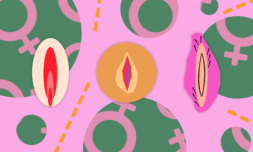#FirstWorldProblems
Social media was once thought to be a tool to bring us together by taking our real-life networks online, staying in touch across international borders, and building online communities with others, regardless of their physical location.
But online communities have fostered a sense of hostility and – because there’s no shortage of more-morbid news online – web users are quick to dismiss one another by saying that their minor inconveniences aren’t worth being upset about, let alone shared on social media.
Perhaps there was no single moment that triggered the routine of diminishing others’ personal experiences by measuring their problems against global issues. Parents have told children to ‘suck it up’ and ‘get over it’ for as long as babies have been born, and that’s surely ingrained in us some level of apathy towards each other’s everyday perils.
That said though, one moment in pop culture has armed us with the perfect response to somebody complaining about things we deem to be miniscule. Its ability to shut someone down with a snappy, one-liner has ensured its prominence over the last decade.
What I’m referring to is a 2011 episode of Keeping Up with the Kardashians. While vacationing in the Maldives, Kim became hysterical when she lost one of her $75,000 diamond earrings in the ocean after being thrown off the private dock by her then-fiancé.
Overhearing her sister scream-crying over the diamond disaster, Kourtney poked her head out of her own private hotel room with baby-on-hip to say in an iconic, deadpan tone, ‘Kim, there are people that are dying.’
This response – both hilarious and strikingly true – immediately made Kim seem overdramatic, especially considering this all happened amidst the backdrop of an extremely lavish holiday resort.
The phrase went viral and has served as a reply when people complain at lengths about trivial things like their favourite TV show being discontinued or waiting hours for a train that was eventually cancelled, for example.
But while funny, is this response actually healthy when used amongst everyday people? Is voicing daily inconveniences becoming a crime? Sure, it can be annoying to listen to – but for the most part, shutting someone else’s distress down in this way can be slightly toxic.
Kourtney’s quote rung particularly true during the height of the pandemic. While many of us sat at home, tweeting about pandemic fatigue, bad skin, gaining weight, and missing our social lives, people were dying.
But that didn’t stop anyone from feeling anxious, depressed, or worried about the future – did it? If anything, the pandemic provided the perfect illustration of how our own personal feelings of stress and imbalance are still real even if we know others are experiencing worse.
Right now, there’s no shortage of news that could make readers feel thankful for the position they’re currently in. Having said that, simply knowing there are worse things happening in the world doesn’t make our own problems go away.
While a humble reminder of personal privilege and expressing gratitude for the comforts of modern life are important, it’s extremely reductive logic to think, ‘I shouldn’t be upset about ABC, because somebody else has XYZ.’
And if we are constantly comparing our own struggles to the wider scope, we might well become passive, apathetic robots with no interest for improving our own wellbeing or lives. Part of being human is using our worst moments as fuel to become better, which ultimately makes us more well-positioned to help others.
Perspective is important
Before we wrap this up, it’s worth clarifying a few things.
This is not to suggest we should collectively amp up our own self-importance or start complaining with assertiveness about every bad thing that happens to us.
Nor am I saying we should give up on paying attention to news about global issues, just because this information makes us feel terrible.
The aim here is to question why one-upping each other (or our own selves) with further negativity has become the norm. It appears that in our efforts to seem ultra-conscious about the world, we’re actually losing compassion for one another in our immediate community.
A personal experience of mine comes to mind, so I’ll tell you about it.
I’d just spent several weeks applying and interviewing for jobs after being unemployed and financially unstable for a number of months. After expressing how I’d not been able to sleep due to the stress of being rejected by almost all of them and wondering how I was going to pay my rent, someone I was seeing had replied, ‘oh poor little American girl, she’s so stressed.’
This was infuriating for two reasons, firstly because I’m not American and secondly, because it exemplified how their lack of empathy combined with their assumptions about my life (they definitely wouldn’t have said this if they saw my bank balance at the time) can completely stifle a connection between two people. Needless to say, I never went to them with anything personal again.
So, when we say things like ‘ok, but there’s people that are dying,’ it might offer a little perspective, but it’s not exactly helpful. It’s akin to telling someone that unless they’re having some kind of life-altering crisis, they should think twice about venting or asking for help.
It goes without saying that most people with access to daily news are already aware that the world is a totally unfair, messed up place. Keeping an almanac of horrible stories to use as a suffering-o-meter doesn’t pacify or make our own negative experiences, struggles, or stresses dissipate.
And with that perspective, all it takes to make the world a bit better is showing compassion to the people around us – or at the very least, lending an ear when they’re down.





















